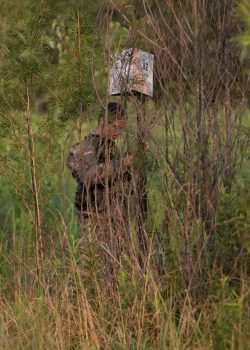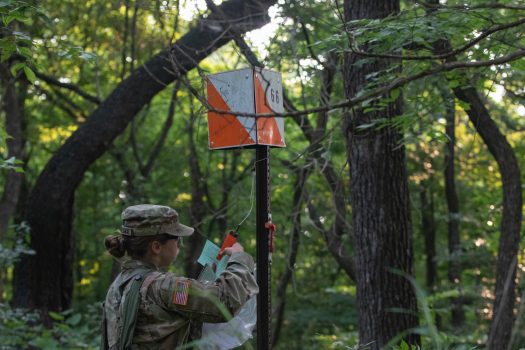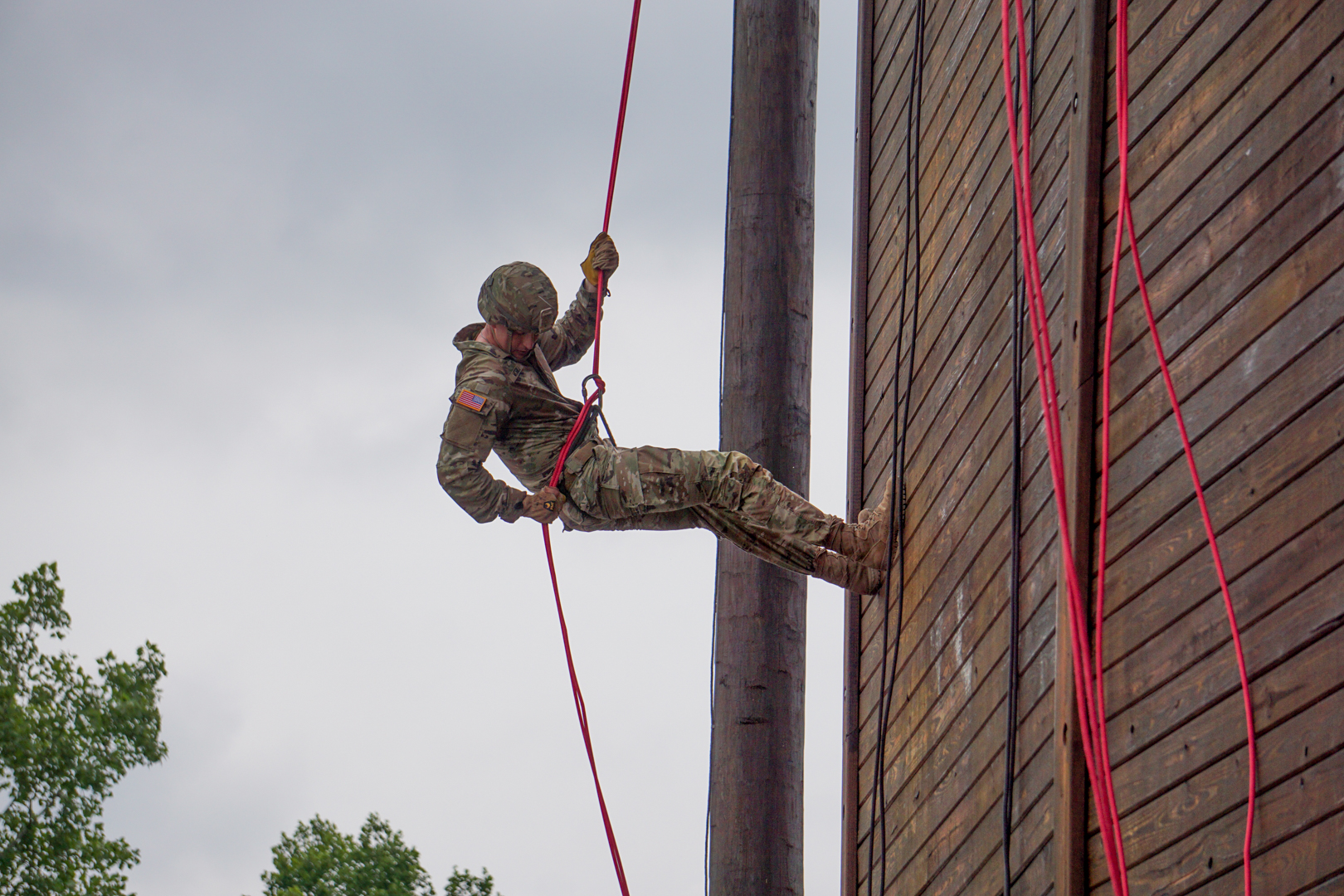On the morning of July 21, 2021, the Cadets of 10th Regiment, Advanced Camp were set loose in the forests of Fort Knox, Ky. with a map, a set of coordinates, and a time limit.

“They’re somewhere in the woods—find them using plotted points,” said Cadet Orkhun Ismayil of Virginia Tech. “You’re given four, and you have to get at least three in four hours.”
The four grid coordinates that were given to each Cadet corresponded to a real-world objective, which were comparatively small orange and white squares suspended about six feet above the ground on a street sign post. Each objective was a mere pin point compared to the expansive and dense thicket of forest that was the training area.
“This is one of the most basic skills you can learn in the military because everything revolves around grid coordinates,” said Cadet Hannah Rhoden from the University of Tennessee.
Hypothetically, a modern battlefield could be unpredictable, and GPS might not always be an option. These Cadets, were training to understand and find grid coordinates on their own.
Although GPS has made it so that many people don’t even pay attention to street signs, Land Navigation training teaches Cadets how to use maps and practical skills. In addition to plotting grid points, they use terrain association (paying attention to winding trails, elevation, and natural landmarks,) and even count how many paces it takes them to walk certain distances.
Many Cadets of 10th Regiment have spent their ROTC careers practicing and learning about Land Navigation, but a lot were still nervous about this test. Those who excelled at the skill took no hesitation in coaching their fellow Cadets.
“Even though I knew the basic fundamentals, I just wanted to have a refresher in order to understand it,” said Cadet Justin Luuga of the University of Southern California. “A few of my colleagues helped me out.” Luuga believes that help from peers can give that extra bit of confidence to push Cadets toward success.

One of the mental hurdles during the course is building trust in your own intuitions to guide you—which Rhoden stressed was a large part of being a leader. Even with trustworthy equipment, doubts can begin to enter the mind when you find yourself in the middle of the woods.
Questions like, “did I plot the point correctly?” or “am I going in circles?” create second guessing, and can easily slow a Cadet down.
Having confidence to find a way forward ultimately pushed nearly half of these Cadets to locate all their points and return to base camp with hours to spare.




